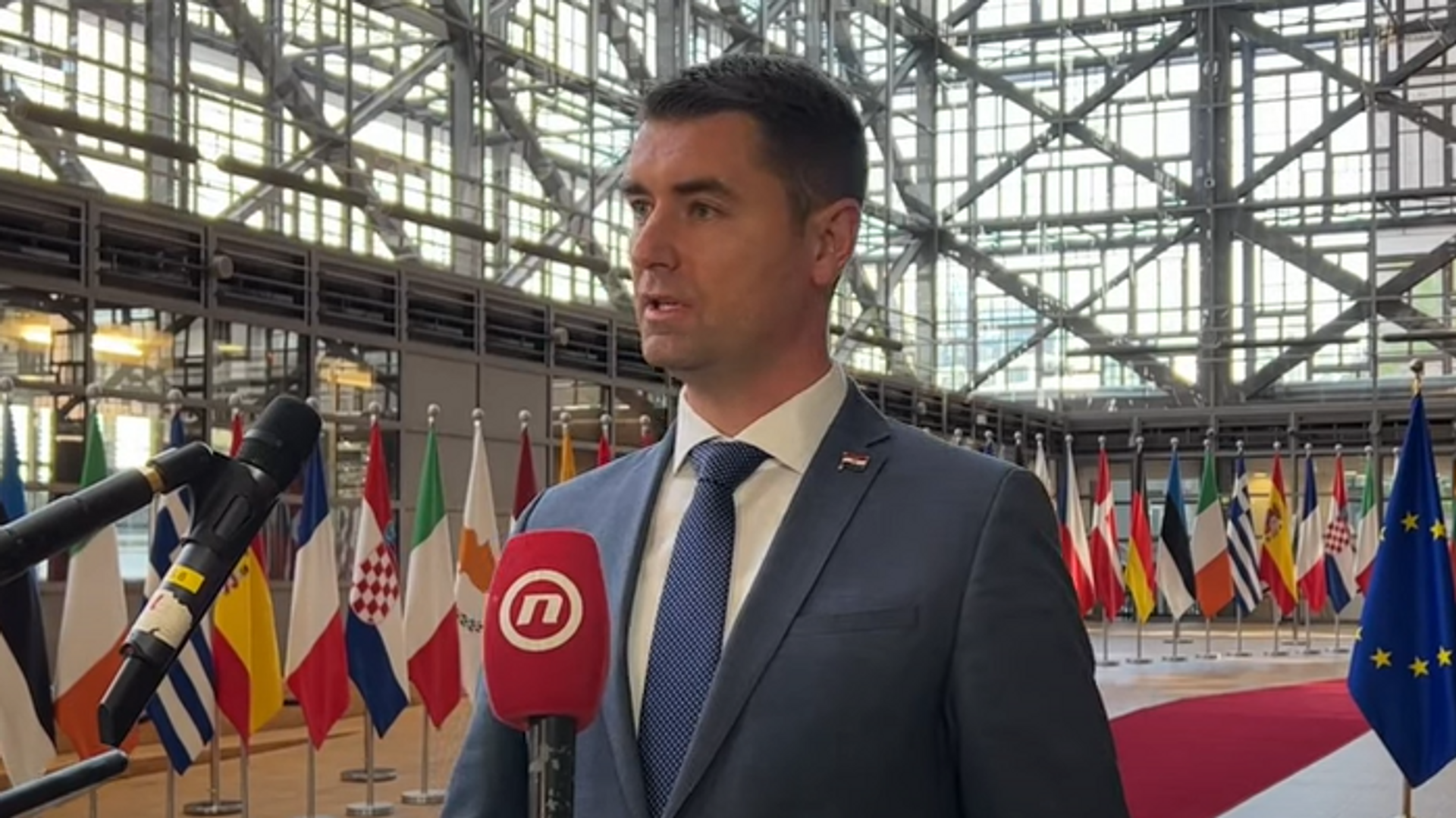https://sputnikglobe.com/20221125/croatia-disagrees-with-eu-commissions-gas-price-cap-plan-says-minister-of-economy--1104667525.html
Croatia Disagrees With EU Commission's Gas Price Cap Plan, Says Minister of Economy
Croatia Disagrees With EU Commission's Gas Price Cap Plan, Says Minister of Economy
Sputnik International
BRUSSELS (Sputnik) - The Croatian authorities consider the gas price cap of 275 euros per megawatt hour proposed by the European Commission too high and hope... 25.11.2022, Sputnik International
2022-11-25T00:22+0000
2022-11-25T00:22+0000
2022-12-08T16:15+0000
croatia
croatia
ukraine crisis
energy
energy crisis
https://cdn1.img.sputnikglobe.com/img/07e6/0b/19/1104667379_63:0:762:393_1920x0_80_0_0_c6f72aa874d221848758994e86d3ce27.png
Earlier this week, the European Commission proposed a 275 euros ($286) cap per megawatt hour starting January 1 for the front-month price at the Dutch gas exchange TTF, the EU's benchmark. The cap will be triggered only if its difference from the global LNG price average exceeds 55 euros for 10 consecutive trading days, according to the plan.As an example, the minister cited the current TTF index futures price of 126 euros per megawatt hour and pointed to projections that it will be 139 euros per megawatt hour in the first quarter of 2023."We hope that a political agreement will be reached on December 13, and we will do everything to help our citizens and our entrepreneurs," Filipovic added.Earlier in the day, Italian Energy Minister Gilberto Pichetto Fratin said in a doorstep comment before the energy council that at least 15 EU states have agreed to reject the Commission's price cap plan.According to Hungarian Foreign Minister Peter Szijjarto, EU energy ministers did not make any decision regarding the proposal on Thursday, with their next meeting on the matter scheduled to take place on December 13.Since 2021, energy prices in EU countries have been surging as part of a global trend. After the beginning of Russia's military operation in Ukraine in February 2022 and the adoption of several packages of sanctions against Moscow by the EU, the increase in energy prices accelerated. Energy security rose to the top of both global and national agenda, forcing European governments to resort to contingency measures.
croatia
Sputnik International
feedback@sputniknews.com
+74956456601
MIA „Rossiya Segodnya“
2022
Sputnik International
feedback@sputniknews.com
+74956456601
MIA „Rossiya Segodnya“
News
en_EN
Sputnik International
feedback@sputniknews.com
+74956456601
MIA „Rossiya Segodnya“
Sputnik International
feedback@sputniknews.com
+74956456601
MIA „Rossiya Segodnya“
croatia, croatia, ukraine crisis, energy, energy crisis
croatia, croatia, ukraine crisis, energy, energy crisis
Croatia Disagrees With EU Commission's Gas Price Cap Plan, Says Minister of Economy
00:22 GMT 25.11.2022 (Updated: 16:15 GMT 08.12.2022) BRUSSELS (Sputnik) - The Croatian authorities consider the gas price cap of 275 euros per megawatt hour proposed by the European Commission too high and hope to lower it in negotiations with other EU member states, Croatian Minister of Economy and Sustainable Development Davor Filipovic said on Thursday.
Earlier this week, the European Commission proposed a 275 euros ($286) cap per megawatt hour starting January 1 for the front-month price at the Dutch gas exchange TTF, the EU's benchmark. The cap will be triggered only if its difference from the global LNG price average exceeds 55 euros for 10 consecutive trading days, according to the plan.
"In the morning, we, the 15 member states that have long been in favor of a gas price cap, held a meeting in which we agreed that the European Commission proposal should be revised, because the maximum gas price proposed at 275 euros is exceptionally high," the minister told reporters following the Extraordinary Transport, Telecommunications and Energy Council in Brussels.
As an example, the minister cited the current TTF index futures price of 126 euros per megawatt hour and pointed to projections that it will be 139 euros per megawatt hour in the first quarter of 2023.
"We hope that a political agreement will be reached on December 13, and we will do everything to help our citizens and our entrepreneurs," Filipovic added.
Earlier in the day, Italian Energy Minister Gilberto Pichetto Fratin said in a doorstep comment before the energy council that at least 15 EU states have agreed to reject the Commission's price cap plan.
According to Hungarian Foreign Minister Peter Szijjarto, EU energy ministers did not make any decision regarding the proposal on Thursday, with their next meeting on the matter scheduled to take place on December 13.
Since 2021, energy prices in EU countries have been surging as part of a global trend. After the beginning of Russia's military operation in Ukraine in February 2022 and the adoption of several packages of sanctions against Moscow by the EU, the increase in energy prices accelerated. Energy security rose to the top of both global and national agenda, forcing European governments to resort to contingency measures.

